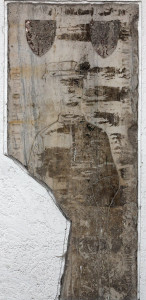
Fondazione Lelio e Lisli Basso – ONLUS is a prestigious international centres for documentation and research on contemporary society, training and cultural promotion. Founded in Rome in 1973 with the merger of Lelio Basso’s rich personal library and the Institute for the Study Of Contemporary Society (1969), it was established as a non-profit organization by the President of the Italian Republic in June 1974. Since 2005, after merging with the Lelio Basso International Foundation (1976), its activities incorporated a global vocation for the promotion of human rights and the rights of peoples.A point of reference for several generations of scholars, politicians and intellectuals, its mission is to promote the culture of democracy and rule of law, the environment and the commons, equality and diversity, the human rights of peoples and of the person.
The range of its scientific and cultural interests spans the interdisciplinary humanities: from history to law, from anthropology to philosophy, from economics to sociology, aiming also at an understanding of interactions with technical-scientific dimensions, such as in the fields of bioethics, the environment, energy resources and digital technologies.The Foundation provides goods and services of public interest at the local, national and international level. It participates in and promotes debate on contemporary society by organizing research, training and communication initiatives involving projects, conferences, seminars, courses, schools, book presentations, exhibitions, publications and services in traditional and digital formats.

The library and historical archives preserve and maintain the rich book and documentation heritage. They are regarded as a benchmark for the study of the processes that are transforming the contemporary world, especially in relation to the development of democracy and mass movements.
The Foundation also promotes permanent initiatives, such as the Observatory on the Respect of Fundamental Rights in Europe and the Permanent Peoples’ Tribunal.
 English
English Italian
Italian French
French Spanish
Spanish






